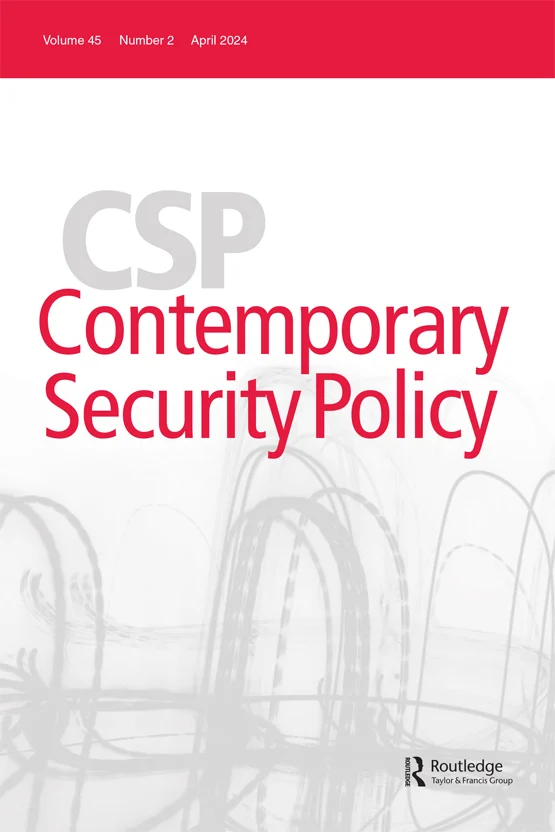国防条约增加了国内对军事行动和伤亡容忍的支持:来自美国调查实验的证据
IF 5
1区 社会学
Q1 INTERNATIONAL RELATIONS
引用次数: 0
摘要
摘要:安全保障是否会影响人们在军事危机中花费国家“鲜血和财富”的意愿?最近的研究发现,国际法律承诺重塑了国内政策偏好。然而,该学术的重点传统上是人权等问题,这些问题定义了一个社会的规范义务。在这项研究中,我们在美国部署了两个原始的调查实验,描述了朝鲜半岛潜在的军事危机。我们发现,1953年华盛顿和首尔之间的协议越来越引人注目,这增加了对军事行动的支持,个人对美国军队的死亡和朝鲜平民的伤亡变得更加宽容。此外,当向个人提供有关协议的更多细节时,这些影响的广度会增加。这些结果将国际法和国内偏好的分析扩展到国家安全政治领域。本文章由计算机程序翻译,如有差异,请以英文原文为准。
Defense treaties increase domestic support for military action and casualty tolerance: Evidence from survey experiments in the United States
ABSTRACT
Do security guarantees affect people's willingness to spend their country's “blood and treasure” in a military crisis? Recent research finds that international legal commitments reshape domestic policy preferences. However, the focus of that scholarship is traditionally on issues such as human rights that define a society's normative obligations. In this study, we deploy two original survey experiments in the United States describing a potential military crisis on the Korean peninsula. We find that increasing the salience of the 1953 agreement between Washington and Seoul increases support for military action and that individuals become both more tolerant of U.S. military deaths and North Korean civilian casualties. In addition, the breadth of these effects increases when individuals are provided more detail about the agreement. These results extend the analysis of international law and domestic preferences into the domain of national security politics.
求助全文
通过发布文献求助,成功后即可免费获取论文全文。
去求助
来源期刊

Contemporary Security Policy
Multiple-
CiteScore
14.60
自引率
6.80%
发文量
22
期刊介绍:
One of the oldest peer-reviewed journals in international conflict and security, Contemporary Security Policy promotes theoretically-based research on policy problems of armed conflict, intervention and conflict resolution. Since it first appeared in 1980, CSP has established its unique place as a meeting ground for research at the nexus of theory and policy.
Spanning the gap between academic and policy approaches, CSP offers policy analysts a place to pursue fundamental issues, and academic writers a venue for addressing policy. Major fields of concern include:
War and armed conflict
Peacekeeping
Conflict resolution
Arms control and disarmament
Defense policy
Strategic culture
International institutions.
CSP is committed to a broad range of intellectual perspectives. Articles promote new analytical approaches, iconoclastic interpretations and previously overlooked perspectives. Its pages encourage novel contributions and outlooks, not particular methodologies or policy goals. Its geographical scope is worldwide and includes security challenges in Europe, Africa, the Middle-East and Asia. Authors are encouraged to examine established priorities in innovative ways and to apply traditional methods to new problems.
 求助内容:
求助内容: 应助结果提醒方式:
应助结果提醒方式:


